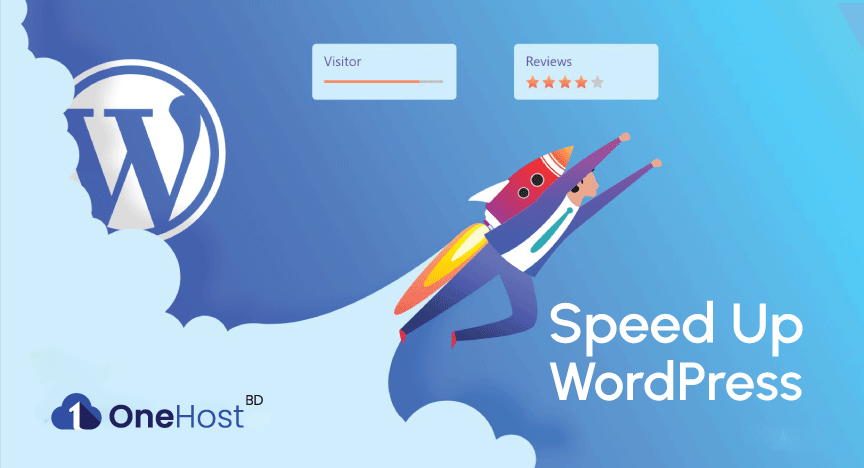
Make WordPress Faster: A Comprehensive Guide. In today's digital world, website speed is more crucial than ever. A fast WordPress website not only improves user experience but also boosts SEO rankings, increases conversion rates, and enhances overall site performance. If you're looking to speed up your WordPress site, you've come to the right place. In this guide, we'll explore the key strategies to optimize your WordPress website for lightning-fast speed.
Before diving into the how-to, let's understand why speed is so important:
Your web host plays a critical role in site speed. Choose a reliable hosting provider known for performance. Many popular choices include: OneHost BD
These hosts offer optimized environments for WordPress that can significantly boost speed.
Themes with lots of features and complex layouts can slow down your site. Opt for lightweight themes that prioritize speed. Some recommended themes include:
These themes are designed to load quickly and provide a smooth user experience.
Large images are a common cause of slow websites. Use image optimization techniques to reduce file size without losing quality. Tools like Smush and Imagify can help automate this process.
Caching stores a static version of your site, reducing server load and speeding up delivery. Use caching plugins like:
These plugins create cached versions of your pages, which load much faster for users.
Minification removes unnecessary characters from your site's code, making it lighter and faster to load. Plugins like Autoptimize and Fast Velocity Minify can help automate this process.
A CDN distributes your site's static files across a network of global servers, ensuring faster delivery to users worldwide. Popular CDN services include:
A CDN reduces latency and speeds up content delivery.
Over time, your WordPress database accumulates data that can slow down your site. Regularly optimize your database using plugins like WP-Optimize to clean up unnecessary data and improve performance.
Too many plugins and widgets can slow down your site. Use only essential plugins and regularly audit your site to remove any that are unnecessary or redundant.
GZIP compression reduces the size of your files, speeding up site loading times. Most caching plugins offer this feature, or you can enable it manually through your site's .htaccess file.
Ensure your WordPress core, themes, and plugins are always up-to-date. Updates often include performance improvements and security patches.
Creating a fast WordPress website is essential for providing a positive user experience, improving SEO rankings, and increasing conversion rates. By following the steps outlined above, you can optimize your WordPress site for speed and ensure that it runs smoothly for all visitors. Remember, website performance is an ongoing process, so continue to monitor and optimize your site regularly for the best results.
Additional Resources
Implementing these strategies will set your WordPress site on the path to being fast and efficient, keeping your users happy and engaged. Happy optimizing!